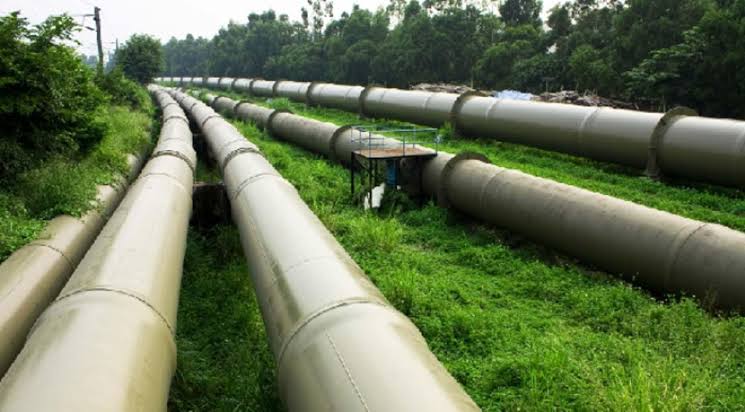News
Gas pipeline vandals crippling NLNG’s operations, stifling global demand —MD

In the heart of Nigeria’s energy sector, a quiet crisis is brewing; one with far-reaching consequences for both the nation’s economy and its standing on the global energy stage.
At the center of this crisis is Nigeria LNG Limited (NLNG), a company once poised to be a global powerhouse in liquefied natural gas (LNG) production. But today, only two of its six gas trains, the processing units vital for turning natural gas into LNG, are still operational. The reason? Relentless attacks on its gas pipelines by vandals.
Dr. Philip Mshelbila, the Managing Director of NLNG, painted a sobering picture at the Nigeria International Energy Summit in Abuja on Wednesday. “In the current moment, I am only running two trains out of six,” he said, his frustration clear. “Three of our gas supply pipelines — GTS 1, GTS 2, and GTS 4 — are down for repairs because of illegal connections by thieves. These are critical lines that supply the energy required for our operations.”
The impact has been devastating. Nigeria, one of the world’s most resource-rich nations, is struggling to meet global demand for LNG. “We’ve had numerous countries from Europe and beyond approach us for supplies, but we simply can’t meet their requests,” Mshelbila revealed. “Meanwhile, competitors like Qatar and the US are stepping in to fill the gap. We’re being left behind because we can’t protect our infrastructure.”
Read Also: Why Nigeria’s refineries are starved of oil, Minister opens up
This crisis has already begun to reflect in hard numbers. Earlier this year, Nigeria’s LNG exports fell by a staggering 20% after vandals destroyed vital pipelines. And the outlook remains grim; planned shipments for next month are already facing delays of at least 10 days.
For those working within the industry, the situation is both frustrating and disheartening. “We talk about energy security, but in reality, gas security is deteriorating fast,” Mshelbila warned. “Until we safeguard these pipelines, our industry will continue to underperform. Energy security must be treated with the same urgency and importance as national security.”
Despite these setbacks, there are glimmers of hope. Mshelbila praised the Nigerian government’s role in fostering an enabling environment for investment, particularly through the public-private partnership model that has been the backbone of NLNG’s growth.
A shining example of this is the $5 billion Train 7 project, which has drawn overwhelming interest from investors and is seen as a beacon of what Nigeria’s energy sector can achieve when conditions are right. “The success of Train 7 reflects the strength of our governance and structure,” Mshelbila said proudly.
But even with this progress, the broader challenges remain. Investment in Nigeria’s energy sector is still hampered by security concerns and inconsistent infrastructure.
Olu Verheijen, Special Adviser to the President on Energy, echoed these concerns while praising NLNG’s governance and financial transparency. “NLNG is a model we should replicate for sustainability across the sector,” she said. “But without addressing the security of our energy infrastructure, we’ll struggle to attract the capital needed to power our future.”
Join the conversation
Support Ripples Nigeria, hold up solutions journalism
Balanced, fearless journalism driven by data comes at huge financial costs.
As a media platform, we hold leadership accountable and will not trade the right to press freedom and free speech for a piece of cake.
If you like what we do, and are ready to uphold solutions journalism, kindly donate to the Ripples Nigeria cause.
Your support would help to ensure that citizens and institutions continue to have free access to credible and reliable information for societal development.




























